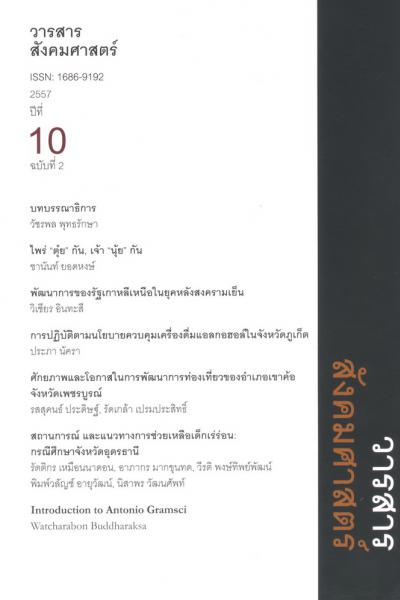The compliance of the alcoholic beverages control policy in Phuket
Main Article Content
Abstract
The purposes of this study are 1) to validate a consistency of the causal structure model of the compliance of the alcoholic beverages control policy to empirical data. 2) To study the level of the compliance of the alcoholic beverages control policy. 3) To investigate both direct and indirect determinants which affect compliance of the alcoholic beverages control policy. This research employed quantitative methodologies. The quantitative method utilized questionnaires created by the researcher to ask samples of people group. Determined the sample size by using the ratio 5 units per observed variable. The sample consisted of 250 people groups. Analyzed the consistency by using Chi-Square, GFI, AGFI and RMSEA and analyzed the level of the compliance of alcohol control policy by using mean (x̄) and standard deviation (S.D.). The casual factors,both direct and indirect to the compliance of the alcoholic beverages control policy were analyzed by using structural equation modeling (SEM) and using the Chi-Square test relationships among variables. This study fnds that 1) the causal structure model of the compliance of the alcoholic beverages control policy were valid and well fitted to the empirical data. (x2 = 29.67 df =19 P-value = 0.056, RMSEA = 0.048, RMR = 0.037, GFI = 0.98 AGFI = 0.93 Rel.x2 = 1.562) 2) The mean of the compliance of the alcoholic beverages control policy in Phuket was found to be moderate (3.8). 3) Both direct and indirect determinants which affect compliance of the alcoholic beverages control policy consisted of 4 factors: (1) Public relations, (2) Attitudes, (3) Perceptions, and (4) satisfaction.


